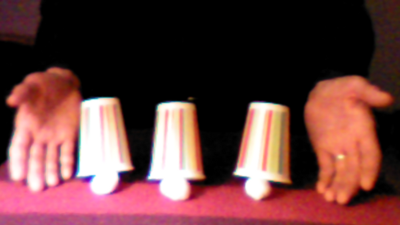The difference between performing tricks and a magic show, is that a show is more than just a bunch of tricks in a row. Learn how to create a show.

A show lets the spectators / audience / participants follow a story of your imagination. There are 2 ways to start such a story.
1. Figure out which of your tricks fit together. How does the end of one connect to the start of another? This is the easiest way. Of course one needs to master their tricks.
2. Dream up a story of something impossible, that has a strong opening, an entertaining middle, and a big finale. This is challenging: if you dream up something for which you know no magic method, you must either research or invent a new method!
Just like with writing exercises in school, you start out with short stories, maybe a minute long, up to 5 minutes. Then gradually progress.
When timing the story, you have to consider the public. You aren't just demonstrating your skill: you also have to give the public time to react, and any participants time to interact.
Assignments
#1: Create a show with 4 tricks, using method #1, and connect each to the next with a tale of wonder. Use any trick you already know. Remember: opening, middle, end.
#2: Repeat assignment #1 with 7 tricks. Think about what story you will tell: are you going to show off? Are you going to let the audience participate? Are you going to use each trick as an effect, or as the utility to an effect? Study the Cups and Balls routine: many performers handle this routine differently, and only a few tell a story that differs from a description of moves.
#3: Write up a story of wonder, or choose one from mythology or the Bible. How would you use the tricks and methods you know to tell that story? Study Eugene Burger's tale of the broken and restored thread. This kind of story depends on spoken word, and treats the single secret magic move as secondary.
#4: Figure out what kind of performer you are: what kind of magic do you like to perform? What do you like to watch? Now take a completely different genre of magic, and using tricks from that genre, create a new show.
#5: Some stories need no words, like pantomime and ballet. Many a manipulation act is performed on music, while mentalists tend to talk a lot. Create a show so strong, that it needs no words. For example, watch the cigarette manipulation routine by mr. Teller, the Penn & Teller duo's shorter half.
Wouldn't you like your events to make a lasting impression?

Send in this contact form, or mail me at emanuel.chester@protonmail.com.